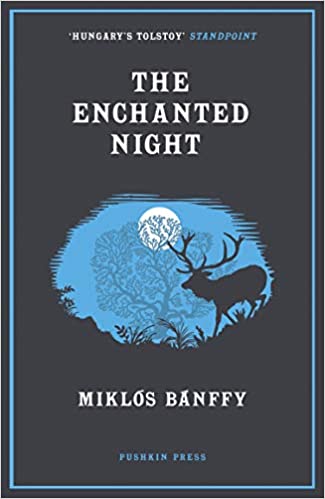The first thing I heard about Miklós Bánffy is that he was known as the Hungarian Tolstoy. Needless to say I was immediately intrigued. The idea of a whole new Tolstoy left to discover in a land which, at least to me, was culturally more remote and mysterious than Russia itself, seemed irresistible. The connection with Tolstoy is often made on account of Bánffy’s Transylvanian Trilogy: a body of work that spans the last ten years of the Austro-Hungarian Empire, also a family saga and a portrait of a conflicted aristocracy and its impending demise.
Enchanted Night however, bears nothing of that weight and is a captivating read for a very different set of reasons. The volume contains a selection of 12 tales that take you from the depths of the Carpathian forests to the light breeze of an Italian villa in the summer. Miklós Bánffy was not only a novelist, he was also born a Count into a well-established Romanian dynasty. And this transpires.

“Reading the stories is like catching a glimpse of a truly cosmopolitan and exclusive world, untainted by frequent flyer miles and other drab tricks of our time. As we travel from Scotland to Venice, or even re-visit ancient citadels and myths, the wonderful illusion is created that we are touring the world in the company of influential friends who will always get us as a seat at the most fabulous tables in town.“
The writing is easy and I am almost tempted to say unaffected even though the fact that the stories were written around the 1920s doesn’t exactly help unless you count yourself among those easily hypnotized by the intrinsic glamour of the period, as do I. I don’t think you could call the stories perfect from a structural standpoint but there is enough detail to create a setting and enough action to set the scene in motion. And just about the right amount of wit and eccentricity to keep you engaged throughout.
Structural considerations aside, one element remains undeniable to me and I suspect it is what created the invisible thread in my personal journey through the stories that kept me pushing on through to read only a few more pages every night (and kept me off Netflix consistently) and it is this: a certain sense of “fantastic tension”. There is a masterful use of suspense that brings plots very close to a breaking point where it would seem there is no other way to resolve the storyline than to resort to a supernatural element.
Interestingly enough, this almost never ends up being the case, and yet there is an atmosphere of magical latency that pervades the text even as it contradicts the narrator’s own voice which is often openly dismissive of silly “superstitions”. It’s in this contested space where we are left alone, faced with a sense of uncertainty, and ultimately wonder, that extends endlessly beyond the page. A feeling very close to that guilty, lingering, impossible one last Christmas Eve, when we were already way too old to still harbor unreasonable belief.
(ARC kindly provided by publisher through Edelweiss+ in exchange for an honest review.)
Flamingos or flamingoes /fləˈmɪŋɡoʊz/ are a type of wading bird in the family Phoenicopteridae, the only bird family in the order Phoenicopteriformes. Four flamingo species are distributed throughout the Americas, including the Caribbean, and two species are native to Africa, Asia, and Europe.
